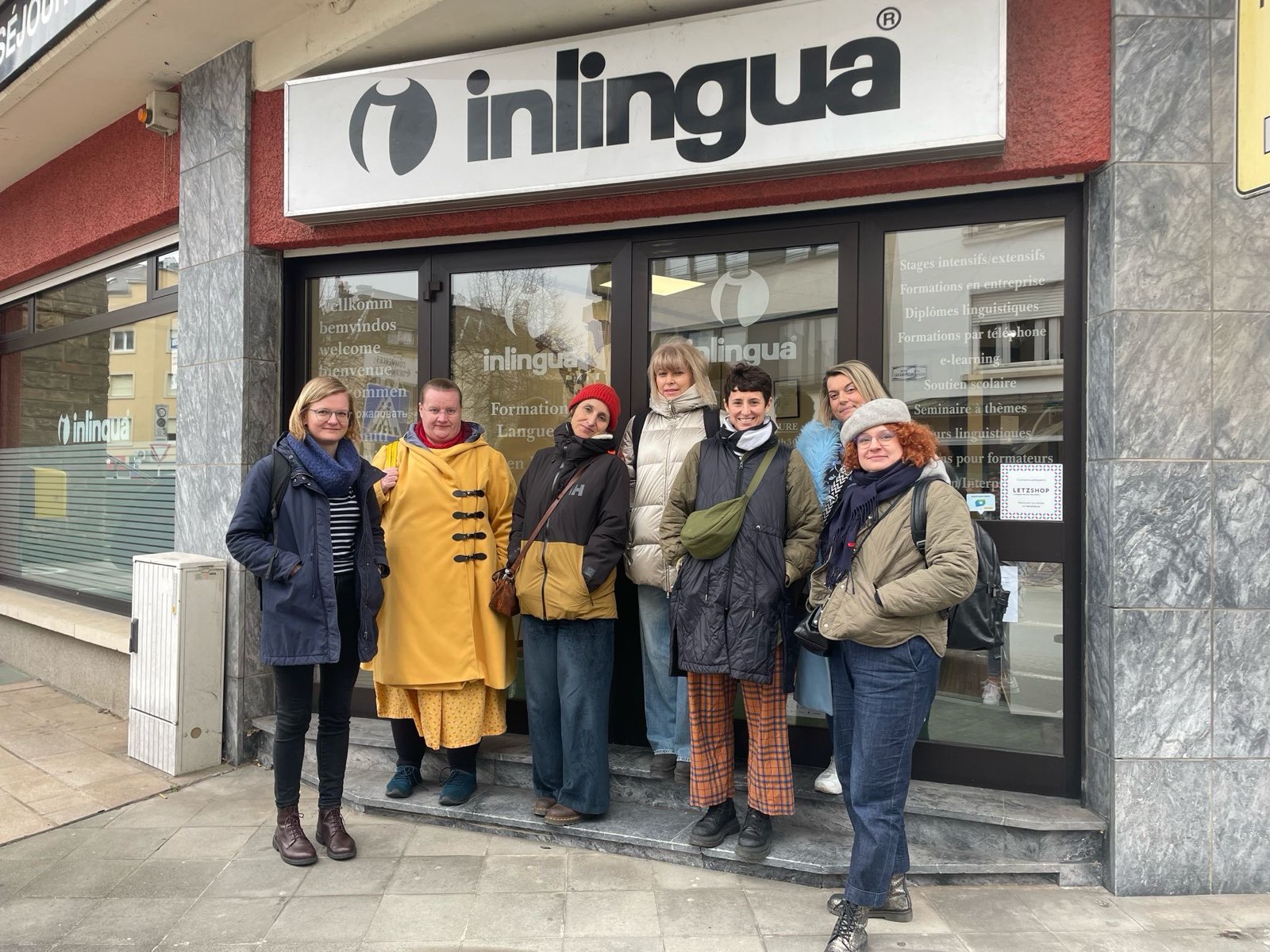
Pillot team unites in Luxembourg: Highlights from the transnational meeting
The Pillot project team held another transnational project meeting, this time in Luxembourg City. The meeting took place from February 26th to March 1st, 2025, and the main goal was to discuss an important milestone of our collaboration - the testing phase of implementing new educational activities for students with a migration background in all consortium countries - Poland, the Czech Republic, Romania, Italy and Luxembourg.
The program was led by our Luxembourg partner - the inlingua® Luxembourg language school. inlingua® is a well-established language school in the heart of Luxembourg City, offering a wide range of language courses for adults and children. Founded in 1993, the learning centre is part of the global inlingua® network, which operates over 300 centres worldwide.
During the meeting, the Pillot team had the opportunity to engage with the local inlingua® teaching staff and explore their methodology in greater detail - particularly the communicative approach to language instruction. Their teaching principles emphasize active speaking and thinking in the target language through practical examples and interactive exercises.
Luxembourg officially recognizes three languages - Luxembourgish, French, and German. As a multicultural hub, Luxembourg is home to a broad mix of linguistic communities, and it’s not uncommon to hear many languages spoken on its streets. For a Pillot team passionate about languages, it was the perfect venue for our project meeting.
A key insight was the learners' positive response to being immersed in cultural settings.
The event was opened by our colleague Rita Costa, Director of Studies and Senior English Trainer at inlingua® Luxembourg, who provided us with context about the local partner organization and led the full agenda.
The team reflected on the recently completed testing phase and discussed the implemented activities together in a face-to-face encounter. Feedback from the sessions was a central topic. One of the themes addressed was for example the issue that the set time duration for the sessions (90 minutes) was insufficient for some of the activities. Another issue was the question of how to tailor and adapt the activities for beginner target language learners. Overall, during the testing, museums, cultural spaces and cultural themes proved to be intriguing environments for education of learners with migratory backgrounds.
A key insight was the learners’ positive response to being immersed in cultural settings. Exploring local culture not only supported language learning but also boosted learners´ sense of belonging, active participation and encouraged reflection on their own cultural heritage.
Together, we then planned steps to ensure the continued success of the Pillot project, so the upcoming phase of the project proceeds smoothly. The steps covering our immediate goals and processes include:
joint preparation of the Good Practice Guide, which will be the final output of our project with the ambition to be a practical companion for all those active in the education of learners with a migration background
agreeing on the structure and plan for preparing our practical material for our students - the Learners’ Manual, which will be created by local teams tailored to their students and the target language
planning and implementation of our promotional support events and activities. We know that dissemination of the results of our cooperation is key to the usability of the project. You will have the opportunity to meet the Pillot team at several joint international events during the summer and autumn - on June 19th at a seminar in Prague and on October 30th at a conference in Warsaw
plans to continue ensuring the project’s digital footprint - creating content in digital form, preparing promotional materials, sharing project stories and much more
The team again used the online meeting to try out one of our activities in practice, a city game using the Goosechase application. Participants experienced firsthand the challenges faced by both educators preparing the game and students in the chase for the reunion destination.
If you want to learn more about how we designed the city game activity, check out our available repertoire of activities HERE. You will find basic instructions on how to put the activity into practice, as well as tips on theoretical and accompanying scholar resources.
Visitors from the Polish Museum of Warsaw, the Italian Stazione Utopia, the Czech Centrum demokratického vzdělávání and the Romanian Transylvanian Museum of Ethnography also explored local cultural heritage together. For example, they visited Mudam - The Contemporary Art Museum of Luxembourg. Here, they looked into a Cosima von Bonin´s exhibition Songs for gay dogs, which questions leisure society and social constructs. Mudam regularly reflects immigration experience through the exhibitions hosted, promotes social cohesion, and facilitates integration of migrants and refugees in Luxembourg. We could see that in the Mudam space, people can connect around art, food and community.
From our subject of interest, it was interesting to learn that Mudam regularly organises a Language Café within the framework of the museum’s exhibitions. These meetings aim to facilitate exchange around contemporary art and culture, as well as an opportunity to practice the main languages spoken in Luxembourg.
We can summarize that the visit to Luxembourg was productive - an opportunity to catch up in person, discuss the substantive and organizational aspects of our cooperation, and learn about other local initiatives connecting cultural heritage and language learning.